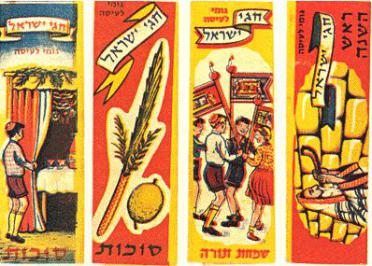Every week, parshaoftheweek.com brings you a rich selection of material on parshat hashavua, the weekly portion traditionally read in synagogues all over the world. Using both classic and contemporary material, we take a look at these portions in a fresh way, relating them to both ancient Jewish concerns as well as cutting-edge modern issues and topics. We also bring you material on the Jewish holidays, as well as insights into life cycle rituals and events...
During this time of year, the period before and during the High Holidays, there is a custom in some Jewish communities to ask forgiveness from everyone you know for any wrong you may have done them. The formula goes something like this: 'if I have done anything to harm you, will you please forgive me'. The notion of asking for forgiveness from someone you have wronged, either physically, financially, or through insult or slight, is an ancient one. It appears in the Talmud and is enshrined in all the great halachic codes, from Maimonides to the Shulchan Aruch. What does NOT appear in these texts, however, is what I described above, in the opening sentences. These codes do NOT tell us to ubiquitously ask all of our friends and acquaintances to forgive us for anything untoward we might have done to them. Rather, we are told that if we know we have wronged someone we must, when appropriate, make restitution, and appease them. The material in the codes is very clear: "...sins between a man and his fellow man, such as injuring your friend, or cursing your friend, or robbing him or anything like that, are not ever forgiven until one gives his friend what is owed him, and appeases him. Even if he returned the money he owes him, he must appease him and ask him to forgive him. Even if he only disturbed his friend with words, he must appease him and ask his forgiveness until he grants it to him." (Maimonides, the Laws of Repentance, chapter 2, halacha 9).
When I was a young wise guy I was very critical of the practice of general forgiveness-asking. I would argue that one does not need to go around annoying all of one's friends by asking them to be pardoned for unnamed and unknown slights, just to be sure that you don't miss any. The halacha says that you need to ask forgiveness if you know that you wronged someone, it does not recommend asking for blanket forgiveness from everyone in your neighborhood or on your Face Book.
Now that I'm a middle-aged wise guy, I think I have come to understand the wisdom of this custom. In interpersonal interactions, it really is hard to know whether something we have said or not said, done or not done, may have hurt someone. The custom of universally asking to be pardoned for any wrongs one may have committed is based on the understanding that we really don't stand in other people's shoes, we really don't know how the things we have said and done may have affected them. Asking everyone we know to forgive us is not a kind of halachic playing-it-safe, not a covering of all possible bases. Rather, it is a profound recognition of the subjectivity of human experience, and of our basic inability to ever really completely understand or appreciate the way someone else feels. With some hesitation, and sadness, I would add that this practice seems to also express the understanding that, given the basic "otherness" of other people's emotional experience, and our inability to really feel what they are feeling, it is inevitable that we will, one way or another, hurt their feelings in our interactions with them. This being the case, it is perfectly appropriate, even necessary, to ask forgiveness of everyone we know.
It is in this spirit, and with this understanding, that I would like to personally, and, insofar as I am able to do so, ask you all to forgive me for any harm or insult you may have suffered at my hands. I assure you it was unintentional, and a result of my inability to feel what you feel.
May you and yours be inscribed in the book of life,
Rabbi Shimon Felix



Get inspired by Yom Kippur Divrei Torah from previous years